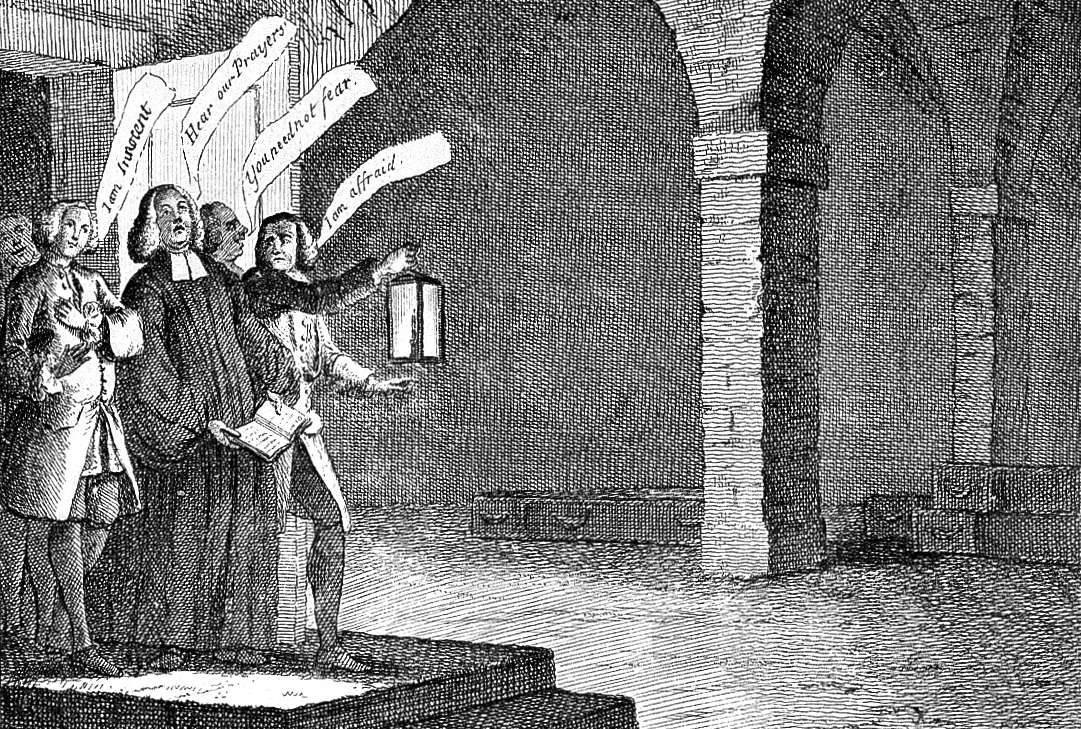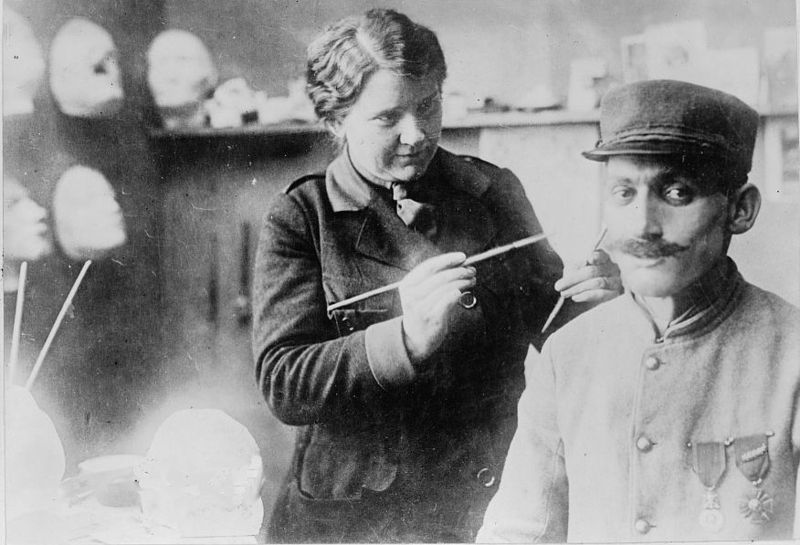
In 1759, ghostly rappings started up in the house of a parish clerk in London. In the months that followed they would incite a scandal against one man, an accusation from beyond the grave. In this week’s episode of the Futility Closet podcast we’ll tell the story of the Cock Lane ghost, an enduring portrait of superstition and justice.
We’ll also see what you can get hit with at a sporting event and puzzle over some portentous soccer fields.






